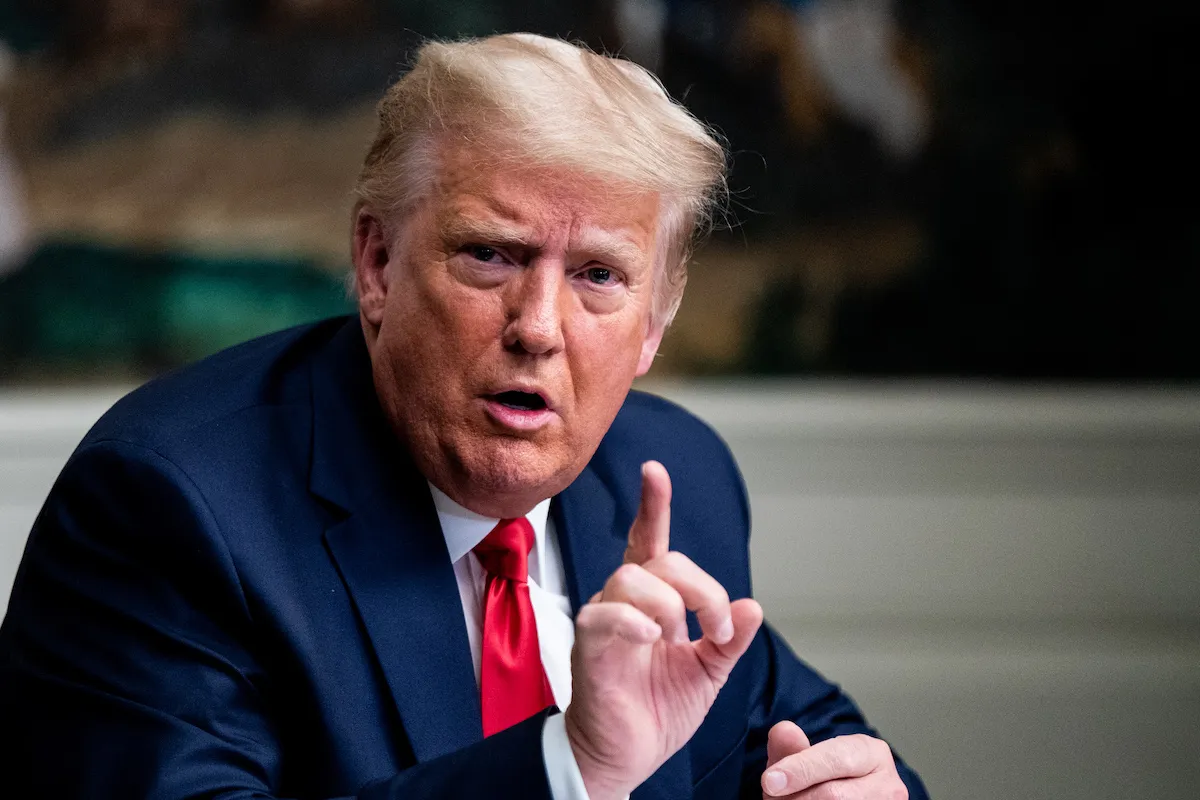Donald Trump has spent the better part of this whole year trying to gain the ability to sue Twitter over the mean things people say about him. Now he’s threatening to veto the entire defense bill if lawmakers don’t also eliminate a section of the Communications Decency Act that prevents social media platforms from being held liable for users’ content.
Section 230 of that act was written back in the 1990s, in the early days of the internet, so a lot of people agree that it could use some updating. Practically no one, however, thinks it should be eliminated entirely, as that would allow people like Trump to sue platforms for not silencing people tweeting things like, say, the hashtag #DiaperDon, which just happened to be trending earlier this week when Trump started ranting about the issue online.
Erin Burnett just brought up #DiaperDon and how much it devastated Trump for the second night in a row pic.twitter.com/WabbUKq0Te
— MeidasTouch.com (@MeidasTouch) December 4, 2020
Earlier this week, Trump tweeted that Section 230 “is a serious threat to our National Security & Election Integrity” and said he planned to veto Congress’ massive annual defense budget if they didn’t use the bill to repeal it. (As of now, the bill doesn’t include anything about 230 because, as Republican Senator and chair of the Senate Armed Services Committee Jim Inhofe told reporters, it “has nothing to do with the military.”)
“The president is serious about it” — McEnany says Trump is serious about defunding the military unless Congress punishes Twitter pic.twitter.com/esG2CoXwoI
— Aaron Rupar (@atrupar) December 2, 2020
Trump doubled down in a 1 a.m. tweet to Inhofe last night. I guess now that he’s on his way out, he doesn’t have to pretend to care about the military anymore.
But doesn’t get rid of Big Tech’s windfall, Section 230, a grave threat to National Security. I will VETO! https://t.co/QI7BfNc7hb
— Donald J. Trump (@realDonaldTrump) December 4, 2020
Trump has been trying to repeal Section 230 for months, ramping up efforts (by which I mean tweets) after Twitter began flagging his tweets for violating their rules this summer. What makes his mission particularly strange, though, is that if he were successful in making internet platforms legally responsible for user content, Twitter would almost certainly have to ban him (and others who refuse to stop spreading misinformation, inciting violence, and engaging in other dangerous forms of speech).
Trump and other conservatives love to say Twitter censors free speech, but repealing 230 would force these sites to actually crack down hard on what kinds of speech they can allow.
Another interesting twist is that if Trump were successful, the site hardest hit would undoubtedly be Parler, the conservative platform that prides itself on not censoring anything, including hate speech and conspiracy theories. That site would get hit with so many lawsuits without this legal protection, it’s almost enough to make a person root for Trump. (Almost.)
(image: Erin Schaff – Pool/Getty Images)
Want more stories like this? Become a subscriber and support the site!
—The Mary Sue has a strict comment policy that forbids, but is not limited to, personal insults toward anyone, hate speech, and trolling.—










Published: Dec 4, 2020 02:54 pm